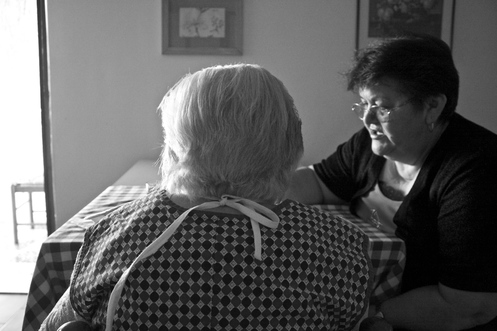Il documentario racconta la vicenda umana di Rina e di Rosa, due donne anziane che vivono la loro ultima fase della loro esistenza che è la vita alla fine della vita. La vecchiaia. Il mondo dei vecchi, come dice Norberto Bobbio, di tutti i vecchi, è, in un modo più o meno intenso, il mondo della memoria. Noi siamo quello che abbiamo pensato, amato, compiuto. Ma, soprattutto, noi siamo quello che ricordiamo. Che ci sia permesso, allora, di vivere sino a che i ricordi non ci abbandonano e che noi possiamo, a nostra volta, abbandonarci a loro.
La storia di questo documentario parte dalle “bambole”. Oggetti, cose, giocattoli più o meno vecchi, più o meno curati, spettinati o nudi, di pezza o di plastica. Bambole che si vedono, a volte, nei tinelli o nelle camere delle signore anziane. Bambole che ti guardano e ti scrutano. Bambole che sentono, in silenzio, la tua presenza.
Sono le bambole a rappresentare simbolicamente, con la loro presenza così immobile e scrutatrice, il senso profondo e surreale della “Vecchiaia”: peculiare condizione di spazio/confine, sociale ed esistenziale; passaggio della vita in un tempo che si fa “durata”.
E bambole sono le protagoniste di questa storia. Donne che con il loro sguardo profondo, distaccato, ironico, a tratti imperscrutabile, sembrano volerci dire che anche loro sono state giovani. Donne che ci introducono nella condizione della “vecchiaia”, l’ultimo viaggio di ognuno di noi. Un viaggio spaventoso perché, come una malattia grave, la vecchiaia evoca in noi, nella nostra cultura, nella nostra mentalità, l’idea ineluttabile della morte.
Un viaggio nella “vecchiaia”, quel momento in cui dovremmo, tutti noi, essere più liberi, finalmente, dalla paura.
